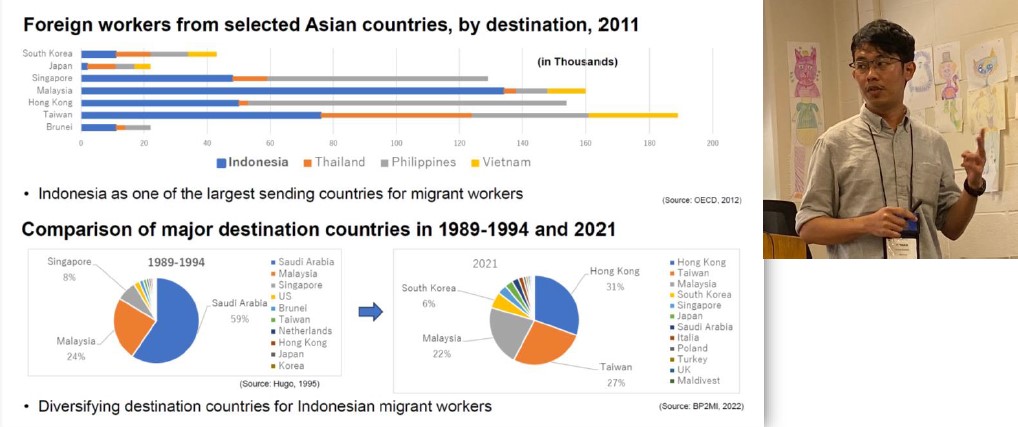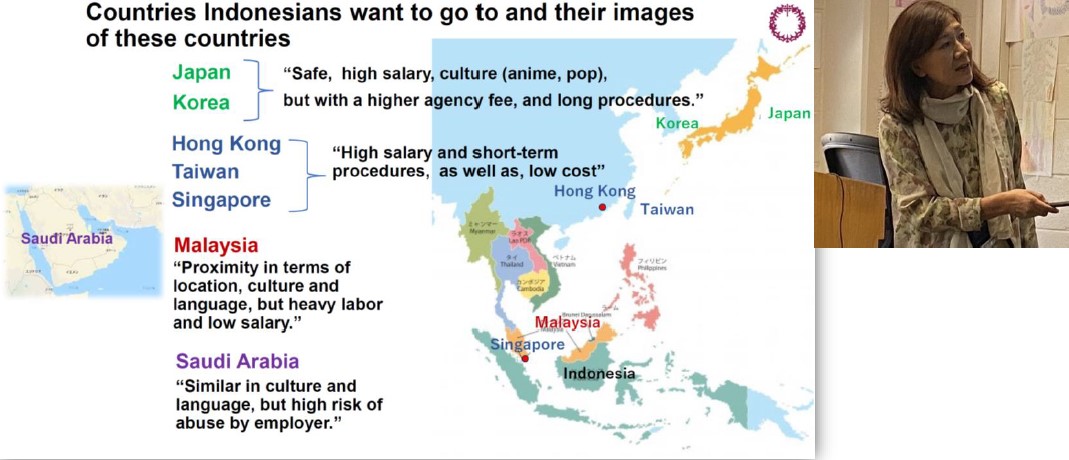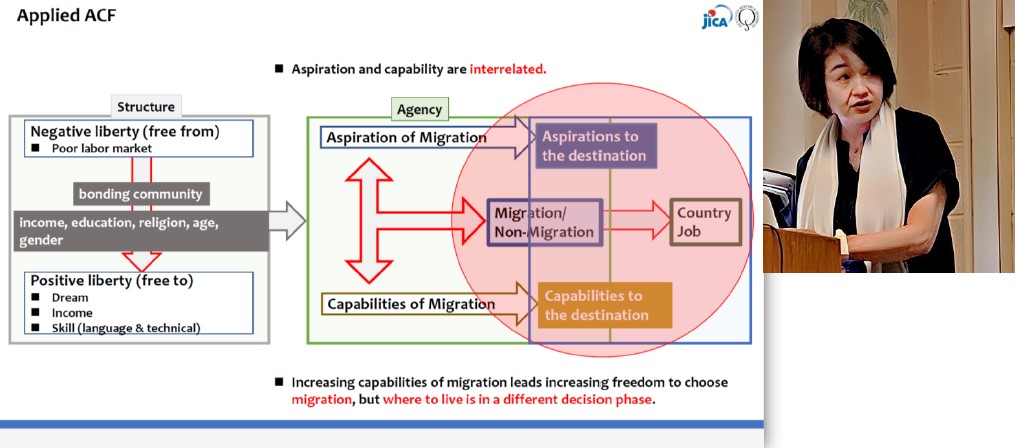Decision-Making Processes of International Labor Migration of Indonesians: Symposium at the International Acculturation Academic Conference in the United States
2023.10.24
On July 27, 2023, a symposium titled “Decision Making: Aspiration and Capability of Indonesian Labor Applicants” was held at the International Acculturation Academic Conference in the United States as part of a research project on “International Migration Routes and Route Selection Mechanisms” implemented by the JICA Ogata Sadako Research Institute for Peace and Development (JICA Ogata Research Institute).
This research project examines international labor migration, a major global trend, aiming to illuminate the route choice mechanisms affecting international migrant workers to determine the role of international cooperation in strengthening and expanding safe migration routes.
The symposium shared and discussed the results of a qualitative study conducted in Indonesia in FY2022 on the government, sending agencies, training centers, and international labor migration applicants with conference participants.
First, Firman Budianto of the National Research and Innovation Agency (BRIN) showed that registration in the government outbound database, which is mandatory for transparency purposes, involves complex procedures to be followed by overseas applicants. As a result, the time required for preparation before departure has increased. In addition, the separation of training functions from sending companies has increased the costs that candidates have to pay when working abroad. These two factors negatively impact the sending process of Indonesian migrant workers.

Firman Budianto of the National Research and Innovation Agency discussed the negative impact on the sending process of Indonesian migrant workers.
Next, Akiko Asai, professor at J. F. Oberlin University conducted in-depth interviews to explore how sociodemographic characteristics and community values affect applicants’ aspirations, capacities, and route choices regarding international labor migration.

Akiko Asai, professor at J. F. Oberlin University, explored how sociodemographic characteristics and community values affect applicants’ route choices regarding international labor migration.
Kiyoko Saito, senior research fellow at the JICA Ogata Research Institute, explained that stakeholders influencing applicants’ decisions often suggest a practical dimension for the international labor migration process. Their advice may affect country selection based on quicker and simpler work procedures instead of candidates’ desired work location, resulting in selection of a destination country that may not always be the best choice for applicants. Finally, the limitations of Haas’s aspiration and capability model are presented, which only explains the feasibility of migration. In conclusion, Saito proposed an applied model that explains destination selection.

Kiyoko Saito, senior research fellow at the JICA Ogata Research Institute, explained that those who are involved in applicants’ decision making may not work for applicants’ best interests.
Nan Sussman, professor emeritus at the City University of New York and the designated discussant, pointed out that one of the problems with international organizations is that they present migration policies but do not provide details on what types of social integration policies should actually be adopted. She expressed her expectations that JICA will propose an effective orientation program in the home country before emigration based on the significant results of this study and apply the program to those who wish to participate. It was interesting to observe that the research framework focused on the social structure of migration and the decision-making mechanism from the applicant’s perspective. Expectations for further analysis were expressed, and the meeting closed on a high note.

事業事前評価表(地球規模課題対応国際科学技術協力(SATREPS)).国際協力機構 地球環境部 . 防災第一チーム. 1.案件名.国 名: フィリピン共和国.

事業事前評価表(地球規模課題対応国際科学技術協力(SATREPS)).国際協力機構 地球環境部 . 防災第一チーム. 1.案件名.国 名: フィリピン共和国.

事業事前評価表(地球規模課題対応国際科学技術協力(SATREPS)).国際協力機構 地球環境部 . 防災第一チーム. 1.案件名.国 名: フィリピン共和国.

事業事前評価表(地球規模課題対応国際科学技術協力(SATREPS)).国際協力機構 地球環境部 . 防災第一チーム. 1.案件名.国 名: フィリピン共和国.

事業事前評価表(地球規模課題対応国際科学技術協力(SATREPS)).国際協力機構 地球環境部 . 防災第一チーム. 1.案件名.国 名: フィリピン共和国.
scroll